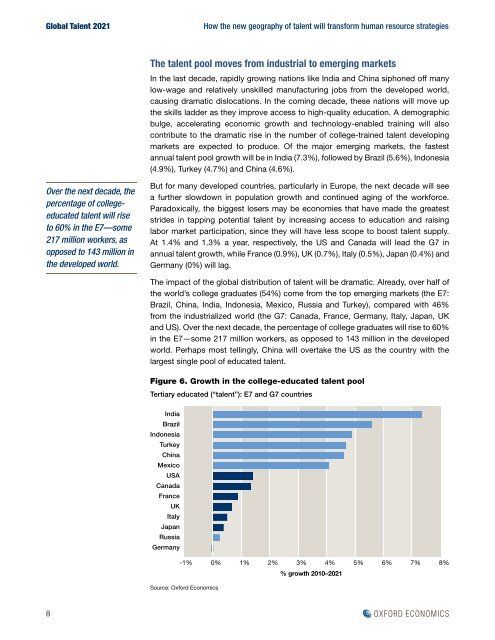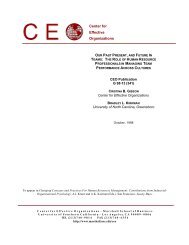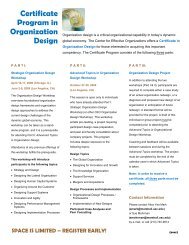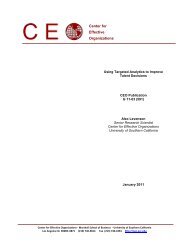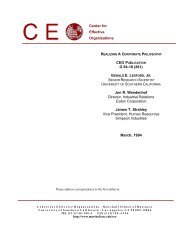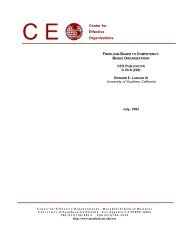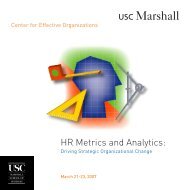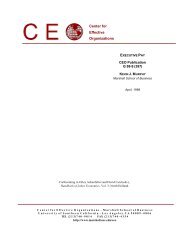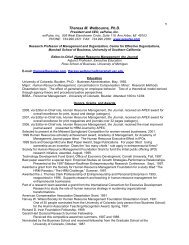Global Talent 2021 - Oxford Economics
Global Talent 2021 - Oxford Economics
Global Talent 2021 - Oxford Economics
- No tags were found...
You also want an ePaper? Increase the reach of your titles
YUMPU automatically turns print PDFs into web optimized ePapers that Google loves.
<strong>Global</strong> <strong>Talent</strong> <strong>2021</strong>How the new geography of talent will transform human resource strategiesThe talent pool moves from industrial to emerging marketsIn the last decade, rapidly growing nations like India and China siphoned off manylow-wage and relatively unskilled manufacturing jobs from the developed world,causing dramatic dislocations. In the coming decade, these nations will move upthe skills ladder as they improve access to high-quality education. A demographicbulge, accelerating economic growth and technology-enabled training will alsocontribute to the dramatic rise in the number of college-trained talent developingmarkets are expected to produce. Of the major emerging markets, the fastestannual talent pool growth will be in India (7.3%), followed by Brazil (5.6%), Indonesia(4.9%), Turkey (4.7%) and China (4.6%).Over the next decade, thepercentage of collegeeducatedtalent will riseto 60% in the E7—some217 million workers, asopposed to 143 million inthe developed world.But for many developed countries, particularly in Europe, the next decade will seea further slowdown in population growth and continued aging of the workforce.Paradoxically, the biggest losers may be economies that have made the greateststrides in tapping potential talent by increasing access to education and raisinglabor market participation, since they will have less scope to boost talent supply.At 1.4% and 1.3% a year, respectively, the US and Canada will lead the G7 inannual talent growth, while France (0.9%), UK (0.7%), Italy (0.5%), Japan (0.4%) andGermany (0%) will lag.The impact of the global distribution of talent will be dramatic. Already, over half ofthe world’s college graduates (54%) come from the top emerging markets (the E7:Brazil, China, India, Indonesia, Mexico, Russia and Turkey), compared with 46%from the industrialized world (the G7: Canada, France, Germany, Italy, Japan, UKand US). Over the next decade, the percentage of college graduates will rise to 60%in the E7—some 217 million workers, as opposed to 143 million in the developedworld. Perhaps most tellingly, China will overtake the US as the country with thelargest single pool of educated talent.Figure 6. Growth in the college-educated talent poolTertiary educated (“talent”): E7 and G7 countriesIndiaBrazilIndonesiaTurkeyChinaMexicoUSACanadaFranceUKItalyJapanRussiaGermany-1% 0% 1% 2% 3% 4% 5% 6% 7% 8%% growth 2010–<strong>2021</strong>Source: <strong>Oxford</strong> <strong>Economics</strong>8OXFORD ECONOMICS


